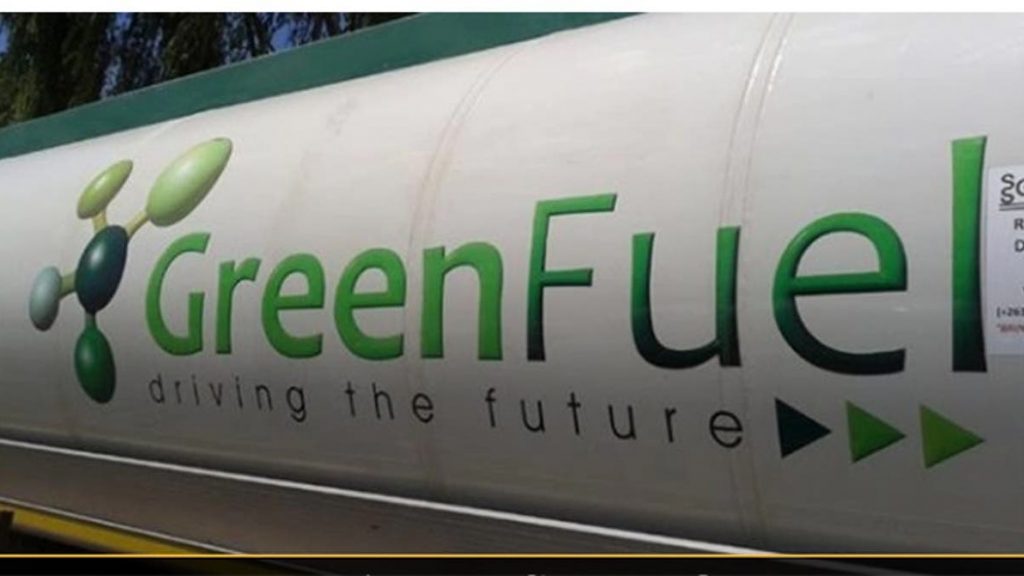Japan’s Idemitsu Kosan, ENEOS, Toyota Motor and Mitsubishi Heavy Industries have agreed to jointly consider introducing carbon-neutral fuels in the country around 2030, the companies said in a joint statement.
Idemitsu, ENEOS, Toyota and MHI have commenced a study to introduce and spread carbon-neutral fuels in the country as part of efforts toward carbon neutrality.
The study followed a signing of memorandum of understanding Jan. 31, 2024, following a proposal from Toyota in the second half of last year to seek a multi-pathway approach toward carbon neutrality, an ENEOS spokesperson said.
As part of the study, the four companies will discuss and study scenarios and roadmaps for the introduction of carbon-neutral fuels including e-fuel produced from CO2 and renewables-derived hydrogen and biofuels made from raw materials such as plants that absorb CO2 via photosynthesis in Japan’s automobile market and necessary frameworks.
The companies will also investigate the feasibility of domestic production of carbon-neutral fuels, with a view of ensuring the country’s energy security.
The latest move by Idemitsu and ENEOS comes as Japan aims to establish highly efficient and massive production technology for e-fuels by 2030 in order to commercialize it by 2040 after going through the introduction, expansion and cost reduction phase in the 2030s, according to the Ministry of Economy, Trade and Industry.
The collaboration comes as Idemitsu has been working on an early introduction of carbon-neutral fuels such as e-fuel and biofuel through collaborations with companies in Japan and abroad.
Most recently, Idemitsu said May 13 that it has taken a minority stake in synthetic fuels producer HIF Global for $114 million under which the company aims to develop an e-methanol supply chain in Japan and abroad with its high multiplicity usage not only as a bunker fuel but also as feedstocks to produce e-gasoline, SAF, e-diesel and synthetic chemicals such as olefin and basic chemicals.
Idemitsu has said it aims to establish an e-fuel supply system by 2030, when it aims to develop 500,000 kiloliters (3.14 million barrels) SAF supply from domestic output and imports.
Similarly, ENEOS is working to establish its e-fuel, biofuels supply chains, with the company starting 1 b/d e-fuel production at its Central Technical Research Laboratory in fiscal year 2024-25 (April-March), with an eye on boosting its e-fuel production to 300 b/d by FY 2030-31 in the country, the ENEOS spokesperson said.
With its multi-pathway approach, Toyota said it is working toward carbon neutrality not just through the spread of electrified vehicles, but also by reducing the CO2 emissions of internal combustion engine vehicles, having introduced flex-fuel vehicles — vehicles that can run on both biofuels and gasoline — in Brazil in 2007.
Toyota added that it will continue to work on reducing the CO2 emissions of internal combustion engine vehicles, including vehicles in operation, and will also consider the development of engines specifically designed for electrified vehicles that contribute to the spread of carbon-neutral fuels.
MHI, meanwhile, is working to build a CO2 solutions ecosystem and a hydrogen solutions ecosystem as part of its efforts toward 2040 carbon neutrality declaration with its group products, technologies and services that help reduce CO2 emissions, as well as new solutions and innovations.
Tags: ENOS Corporation, Idemitsu Kosan, Mitsubishi, Toyota



Recent Posts
Report Highlights Pathway for Electrifying Nigeria’s Container Trade Sector
South Korean Company YPP Plans to Invest up to $3.1 Billion in Green Hydrogen Production in Kazakhstan
WattEV Expands Electric Truck Charging Network with Three New Depots in California
Anemoi Develops New Method to Accurately Measure Wind-Assisted Propulsion Benefits
Navigator Holdings and Amon Maritime Form Joint Venture for Ammonia-Fuelled Carrier Fleet
Hygenco Commissions Maharashtra’s First Green Hydrogen and Oxygen Facility to Power STL’s Net Zero Goals
India Invites Second Round of R&D Proposals Under ₹4 Billion Green Hydrogen Mission
BMTC Adds 148 Tata Electric Buses to Bengaluru Fleet, Strengthens Green Mobility Drive